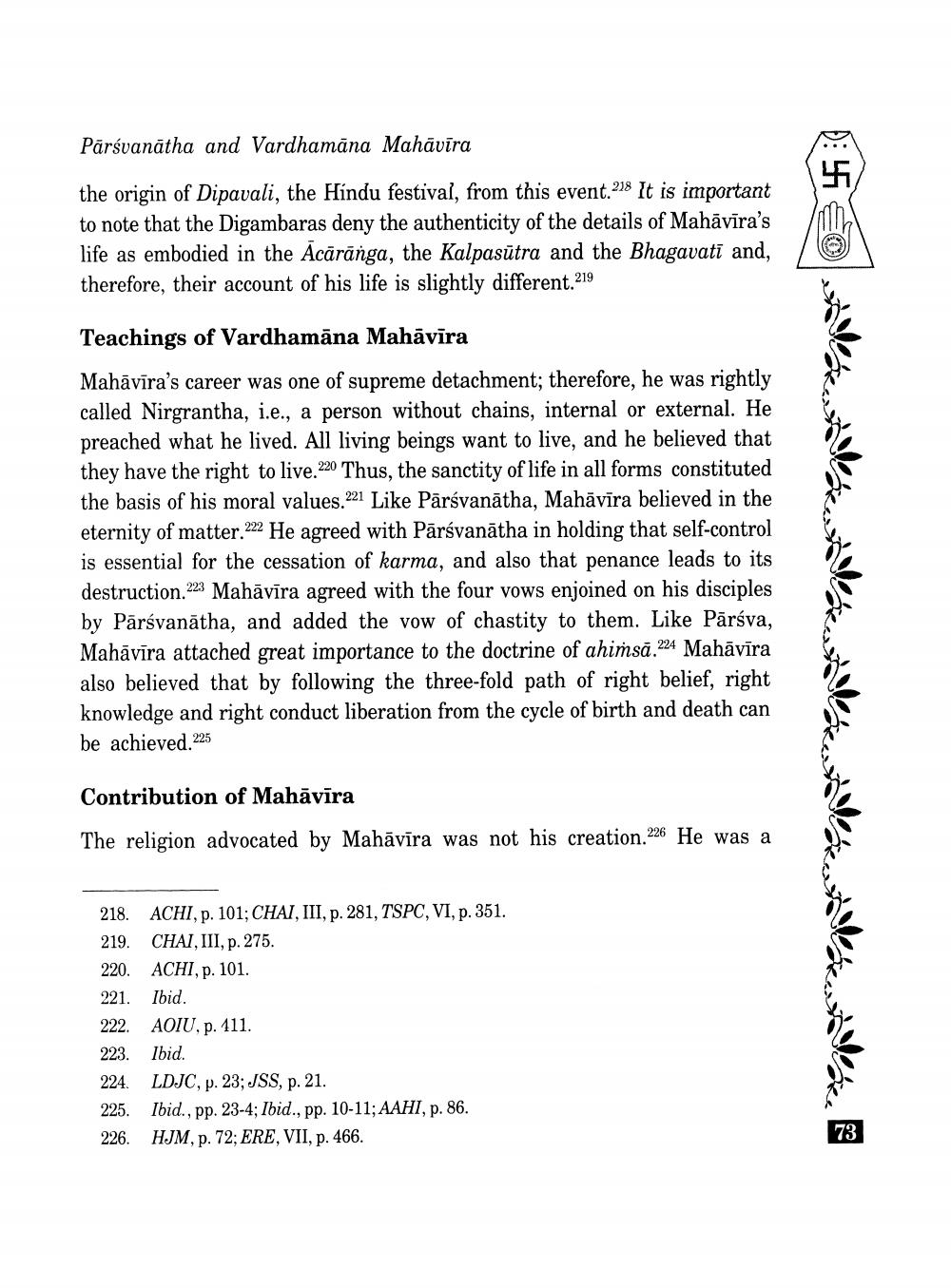________________
Pārsvanatha and Vardhamana Mahāvīra
the origin of Dipavali, the Hindu festival, from this event.218 It is important to note that the Digambaras deny the authenticity of the details of Mahāvīra's life as embodied in the Acaranga, the Kalpasūtra and the Bhagavati and, therefore, their account of his life is slightly different.219
Teachings of Vardhamana Mahāvīra
Mahāvīra's career was one of supreme detachment; therefore, he was rightly called Nirgrantha, i.e., a person without chains, internal or external. He preached what he lived. All living beings want to live, and he believed that they have the right to live.220 Thus, the sanctity of life in all forms constituted the basis of his moral values.221 Like Parśvanatha, Mahāvīra believed in the eternity of matter. 222 He agreed with Pārsvanatha in holding that self-control is essential for the cessation of karma, and also that penance leads to its destruction.223 Mahāvīra agreed with the four vows enjoined on his disciples by Pārsvanatha, and added the vow of chastity to them. Like Pārśva, Mahāvīra attached great importance to the doctrine of ahimsa.224 Mahāvīra also believed that by following the three-fold path of right belief, right knowledge and right conduct liberation from the cycle of birth and death can be achieved.225
Contribution of Mahāvīra
The religion advocated by Mahāvīra was not his creation.226 He was a
ACHI, p. 101; CHAI, III, p. 281, TSPC, VI, p. 351.
218.
219. CHAI, III, p. 275.
220. ACHI, p. 101.
221. Ibid..
222. AOIU, p. 411.
223.
Ibid.
224. LDJC, p. 23; JSS, p. 21.
225. Ibid., pp. 23-4; Ibid., pp. 10-11; AAHI, p. 86.
226. HJM, p. 72; ERE, VII, p. 466.
@急 卐
73




